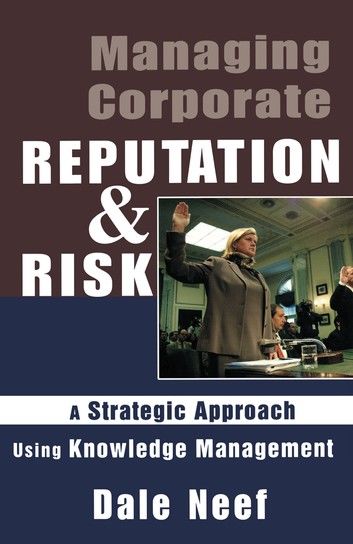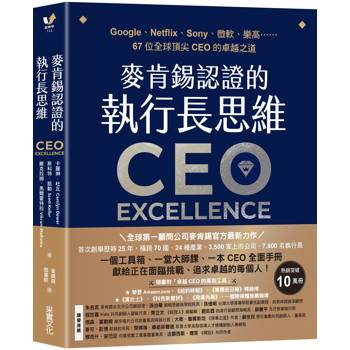| FindBook |
有 1 項符合
Managing Corporate Reputation and Risk的圖書 |
 |
Managing Corporate Reputation and Risk 作者:Dale Neef 出版社:Taylor & Francis 出版日期:2012-06-25 語言:英文 |
| 圖書館借閱 |
| 國家圖書館 | 全國圖書書目資訊網 | 國立公共資訊圖書館 | 電子書服務平台 | MetaCat 跨館整合查詢 |
| 臺北市立圖書館 | 新北市立圖書館 | 基隆市公共圖書館 | 桃園市立圖書館 | 新竹縣公共圖書館 |
| 苗栗縣立圖書館 | 臺中市立圖書館 | 彰化縣公共圖書館 | 南投縣文化局 | 雲林縣公共圖書館 |
| 嘉義縣圖書館 | 臺南市立圖書館 | 高雄市立圖書館 | 屏東縣公共圖書館 | 宜蘭縣公共圖書館 |
| 花蓮縣文化局 | 臺東縣文化處 |
|
|
With the collapse of high-profile companies such as Enron and Tyco, worldwide anti-globalization protests, and recent revelations of questionable behavior by financial groups and auditors, corporate behavior has become the highest priority topic for businesspeople, investors, politicians and the public. Yet despite the critical importance of maintaining public and shareholder trust, most corporations make very little formal effort to actively manage the activities that can put their reputation, share price, and customer base at risk. Most corporations officially embrace the concept of Corporate Social Responsibility; but giving money away to local communities or worthy causes will not prevent an ethical disaster.
The problem is not social irresponsibility; the problem is a lack of knowledge about what is taking place in the company or at its subcontractor sites. What companies need to be thinking about is not a theoretical construct around Corporate Social Responsibility, or how they can spin public opinion by charitable actions. They need to be thinking about how they can create a practical knowledge and risk management framework in their company that allows them to avoid costly and reputation-damaging behavior in the first place.
Ultimately, this comes down to knowledge management. Whether violations of human rights, employment law, or environmental standards - or simply accounting shenanigans - invariably the reason that these activities are not anticipated and avoided is simply that executives and board members do not realize what is happening in the organization, and what the likely implications of actions will be. And the larger the organization, the more extensive that lack of knowledge.
The good news is that developing a strategic approach to corporate integrity is neither exceptionally expensive nor particularly difficult. The problem is that companies that are already using sophisticated information technology and knowledge management tools for gathering internal and external information have focused those systems and practices almost exclusively on operational issues and increasing productivity. But these same knowledge management techniques - built around emerging ethical guidelines being developed by international standards groups - can be used by companies to create an effective global policy for building and maintaining corporate integrity. This means applying knowledge management techniques in three important areas:
* First, they need to mobilize key employee knowledge and the vast amount of information available on potentially sensitive issues in a way that allows key decision-makers to "sense and respond" quickly and correctly to developing risks.
* Second, it means creating objective, scenario-based guidelines for ethical behavior, communicating those guidelines using knowledge management techniques among key organizational leaders, and providing a workable system of incentives for managers to surface potentially dangerous issues.
* Third, companies need to adopt emerging guidelines such as AA1000 that provide for ethical procedures and performance indicators that enable companies to audit and monitor their own behavior, and also to provide shareholders and the buying public with an objective report on the company's ethical performance. Much like ISO 9000, Six Sigma and other performance and productivity and practice standards of the 1990s, these new global ethics standards will inevitably become a baseline by which investors and customers judge a company's potential for future growth and stability. High marks on auditable ethical performance set against these guidelines will become an important way for companies to differentiate themselves from their competition in the future.
Developing a workable program for corporate ethics will be one of the most important issues of this decade, and will be "the next big thing" for large organizations. A drive toward standardized reporting of corporate ethics practices was coming anyway; the recent public corporate disasters will only encourage corporate executive teams to scramble to demonstrate to customers and shareholders that their organization takes these issues seriously.
This book, therefore, will be a primer for business people and business students worldwide who will shortly be tasked with devising or participating in those types of corporate integrity initiatives, and will explain how knowledge management is indispensable as a tool for helping corporations to manage their risk and integrity policies. Through a mixture of leading practice case studies and a clear framework, it will show how a corporation can begin to combine leading practices in risk and knowledge management with emerging international guidelines in order to develop and manage a program of corporate integrity.
|











